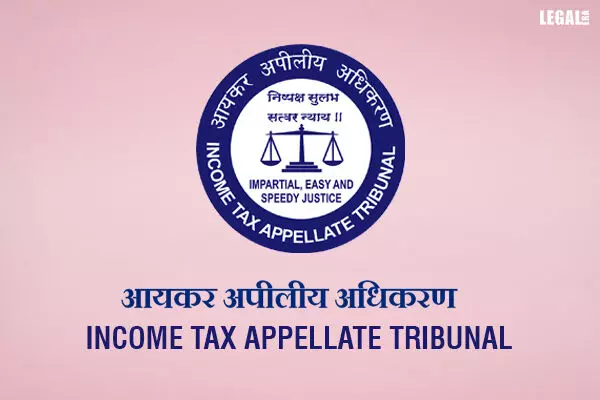- Home
- News
- Articles+
- Aerospace
- Agriculture
- Alternate Dispute Resolution
- Banking and Finance
- Bankruptcy
- Book Review
- Bribery & Corruption
- Commercial Litigation
- Competition Law
- Conference Reports
- Consumer Products
- Contract
- Corporate Governance
- Corporate Law
- Covid-19
- Cryptocurrency
- Cybersecurity
- Data Protection
- Defence
- Digital Economy
- E-commerce
- Employment Law
- Energy and Natural Resources
- Entertainment and Sports Law
- Environmental Law
- FDI
- Food and Beverage
- Health Care
- IBC Diaries
- Insurance Law
- Intellectual Property
- International Law
- Know the Law
- Labour Laws
- Litigation
- Litigation Funding
- Manufacturing
- Mergers & Acquisitions
- NFTs
- Privacy
- Private Equity
- Project Finance
- Real Estate
- Risk and Compliance
- Technology Media and Telecom
- Tributes
- Zoom In
- Take On Board
- In Focus
- Law & Policy and Regulation
- IP & Tech Era
- Viewpoint
- Arbitration & Mediation
- Tax
- Student Corner
- AI
- ESG
- Gaming
- Inclusion & Diversity
- Law Firms
- In-House
- Rankings
- E-Magazine
- Legal Era TV
- Events
- News
- Articles
- Aerospace
- Agriculture
- Alternate Dispute Resolution
- Banking and Finance
- Bankruptcy
- Book Review
- Bribery & Corruption
- Commercial Litigation
- Competition Law
- Conference Reports
- Consumer Products
- Contract
- Corporate Governance
- Corporate Law
- Covid-19
- Cryptocurrency
- Cybersecurity
- Data Protection
- Defence
- Digital Economy
- E-commerce
- Employment Law
- Energy and Natural Resources
- Entertainment and Sports Law
- Environmental Law
- FDI
- Food and Beverage
- Health Care
- IBC Diaries
- Insurance Law
- Intellectual Property
- International Law
- Know the Law
- Labour Laws
- Litigation
- Litigation Funding
- Manufacturing
- Mergers & Acquisitions
- NFTs
- Privacy
- Private Equity
- Project Finance
- Real Estate
- Risk and Compliance
- Technology Media and Telecom
- Tributes
- Zoom In
- Take On Board
- In Focus
- Law & Policy and Regulation
- IP & Tech Era
- Viewpoint
- Arbitration & Mediation
- Tax
- Student Corner
- AI
- ESG
- Gaming
- Inclusion & Diversity
- Law Firms
- In-House
- Rankings
- E-Magazine
- Legal Era TV
- Events
ITAT rules a company cannot get its accounts audited and approved in AGM the same day

ITAT rules a company cannot get its accounts audited and approved in AGM the same day
The assessing officer maintained the assessee had not followed the Income Tax Rules
The Delhi bench of the Income Tax Appellate Tribunal (ITAT) has held that it is impossible for a company to get its accounts audited on 31 March and present them for approval in the Annual General Meeting (AGM) on the same day.
The two-member bench of Kul Bharat (judicial member) and NK Billaiya (accountant member) observed that the certificate of the auditors did not mention that the valuer had considered the audited balance sheet. The certificate of the auditors was based on the statement and documents furnished by the company, which were neither audited nor certified by the auditors.
The assessee/appellant company was incorporated in 1995. Ever since, it did no business, but was engaged in providing accommodation. Despite that, the company issued 8 lakh shares, each with a face value of Rs.10, to two companies - Elecon Securities Pvt Ltd and Ordinary Financial Services Pvt Ltd.
Since the assessee received shares with a face value of Rs.10 and a premium of Rs.65 from Elecon and Ordinary, it valued its own shares at Rs.75 each.
On the assessing officer (AO) questioning the assessee on 60,000 shares at Rs.75 per share, the assessee justified it by submitting a valuation report as per the Income Tax Rules.
However, the AO rejected the report, believing that the basis of the valuation, the balance sheet, had not been adopted at the company's AGM. Hence it was not as per the IT Rules. He proceeded by valuing the shares and determining the price at 65.6447 per share and made an addition of the difference.
The issue raised was whether the assessee valued the shares as per the balance sheet dated 31 March 2014, in accordance with IT Rules.
The tribunal cited the speech of finance minister Nirmala Sitharaman calling for taxing share premiums above the fair market value and increasing the burden of proof for closely held businesses receiving funds from shareholders.
ITAT thus ruled that the assessee had failed in discharging the onus.



